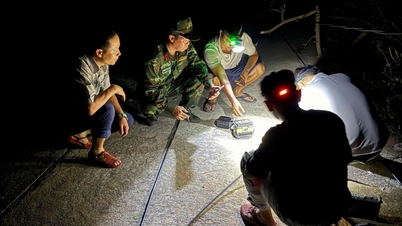
The report, which compiles responses from 50 of 53 European countries, found that only four (8%) have developed a national strategy on AI in healthcare , while seven others are in the process of developing one.
Speaking at a press conference, Ms. Natasha Azzopardi-Muscat, WHO Europe's medical director, emphasized that AI brings many benefits such as improving public health, supporting health workers and reducing the cost of care. However, if not strictly regulated, this technology can pose risks, reducing patient safety, violating privacy and increasing inequalities in access to services.
According to WHO, nearly two-thirds of countries in the region have started using AI for diagnostics, especially imaging and disease detection. About half of the countries use AI chatbots to support and interact with patients. However, the agency warns that legal challenges remain, with 86% of countries saying that the lack of legal framework is the main barrier to expanding AI applications.
Mr. David Novillo Ortiz, WHO regional advisor on data, AI and digital health, said that countries need to overcome a number of problems such as the lack of clear legal standards, doctors may hesitate to rely on AI tools and the lack of legal corridors to protect patients when incidents occur.
WHO Europe calls on countries to clarify legal responsibilities as soon as possible, establish a mechanism to resolve damages, and ensure that AI systems are fully tested for safety, fairness, and effectiveness before widespread deployment./.
Updated November 20, 2025
Source: https://laichau.gov.vn/tin-tuc-su-kien/chuyen-de/tin-trong-nuoc/who-keu-goi-tang-cuong-khung-phap-ly-cho-ung-dung-ai-trong-y-te.html






































































































Comment (0)